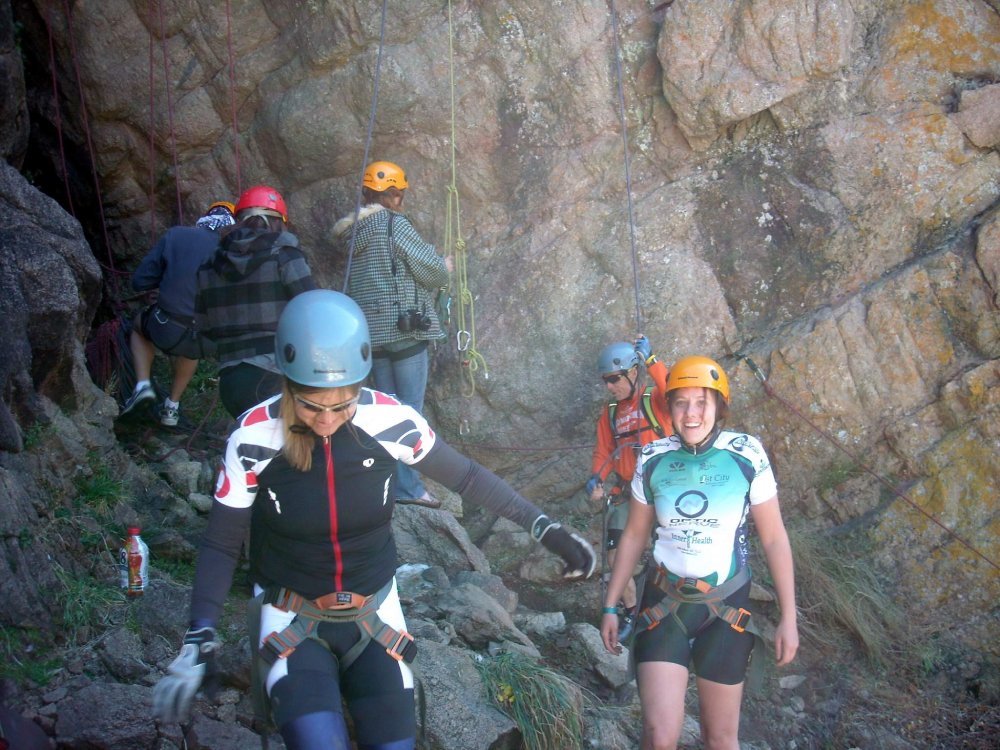Introduction
Caving is more than just an adventure; it’s a journey into the unknown, where every twist and turn can lead to discoveries. But with this excitement comes responsibility. The importance of caving training cannot be overstated—it’s the foundation that keeps you safe while exploring the hidden wonders of the earth. For many, the idea of wandering through dark, mysterious caves is thrilling, yet it can also be intimidating, especially without proper preparation.
Imagine the fear of being in a small area and having no idea where you are going or how to get there safely. This fear affects many novices and even seasoned cavers who haven’t received official instruction. There are genuine worries about the possibility of getting hurt, lost, or even trapped, which can turn an exciting adventure into a terrifying experience. All cavers, novice or experienced, may encounter these issues if they downplay the significance of training.
The good news is that there is a solution that can help you overcome these fears and feel confident enough to embrace the adventure: cave training. Training gives you the information and abilities to deal with the difficulties of the underground world, increasing both the safety and enjoyment of your experience. Let’s explore in more detail the importance of caving training and how it can significantly impact your spelunking experiences.

Why Caving Training Matters
Caving is a singular activity that puts you in a setting where nature rules supreme and forces you to step outside of your comfort zone. In contrast to hiking or climbing, caving calls for specific knowledge and abilities because the surroundings can change quickly and are frequently unpredictable. Here are some explanations for the significance of cave training:
Safety Comes First
The last thing you want to worry about when you’re deep in a cave is how you’re going to handle an emergency. Essential safety skills, like using ropes and harnesses, navigating difficult passageways, and reacting to potential hazards like falling rocks or sudden floods, are all taught during caving training. If you receive the right instruction, you’ll be able to avoid mishaps and know what to do if something goes wrong, protecting both you and the other cavers.
Building Confidence
It’s normal to be afraid of the unknown, particularly in a strange and dark place like a cave. Training helps you become more confident by acquainting you with the surroundings and teaching you how to respond to various circumstances. Your attitude to your caving adventure can significantly change if you are capable of maneuvering safely through confined spaces or climbing steep walls. Being confident not only makes your experience better but also helps you feel less nervous, which lets you take full advantage of the underground world’s wonders.
Teamwork and Communication
Since caving is frequently a group activity, good communication is essential to ensuring everyone’s safety. The importance of teamwork is emphasized in caving training, which teaches you how to coordinate movements, communicate with your teammates, and support one another in trying circumstances. Because of the cooperation and trust that this training promotes, the experience is less stressful and more pleasurable.
Understanding Cave Environments
Every cave is different, with its own ecosystems, challenges, and geological formations. Your training as a caver gives you an understanding and appreciation of these environments. You’ll discover the value of leaving no trace, how to preserve delicate formations, and how to conserve caves. Your appreciation of the wonder and fragility of caves will grow as a result of this knowledge, which also promotes ethical and sustainable caving methods.
Step-by-Step Guide to Caving Training
If you’re considering getting into caving, or if you’re already a caver looking to improve your skills, here’s a step-by-step guide to getting the training you need:
1. Find a Qualified Instructor
The first step is to find a qualified caving instructor or join a caving club that offers training. Look for instructors with experience and certification in caving. They will provide you with the foundational knowledge you need and guide you through the learning process.
2. Learn the Basics
Your training will start with the basics, such as understanding caving gear, learning how to use ropes and harnesses, and practicing essential techniques like belaying and rappelling. These skills are the building blocks for more advanced caving activities.
3. Practice Navigation
Navigation is a critical skill in caving. You’ll learn how to read cave maps, use compasses and other tools, and develop spatial awareness to navigate through complex cave systems. This part of the training helps you avoid getting lost and ensures you can find your way back safely.
4. Safety Drills and Emergency Preparedness
Safety drills are an essential part of caving training. You’ll practice scenarios such as rescuing a fellow caver, dealing with injuries, and responding to unexpected events like flooding or equipment failure. These drills prepare you to handle emergencies calmly and effectively.
5. Advanced Techniques
As you progress, you’ll learn advanced techniques, such as single rope techniques (SRT), vertical caving, and dealing with more challenging cave environments. These skills allow you to explore more difficult and rewarding caves safely.
6. Regular Practice and Refresher Courses
Caving skills require regular practice to stay sharp. It’s also important to take refresher courses, especially if you haven’t been caving for a while. This keeps your skills up-to-date and ensures you’re always prepared for your next adventure.
Caving Training Importance in Real-Life Scenarios
Let’s take a moment to consider how caving training plays out in real life. Imagine you’re deep in a cave, navigating a narrow passage when suddenly, the ground beneath you gives way. Without proper training, this situation could lead to panic and serious injury. But with caving training, you know how to assess the situation, secure yourself, and either find a safe route out or wait for rescue. This kind of preparation can make the difference between a minor scare and a life-threatening incident.
Training also helps you with less technical but no less significant aspects of caving, like regulating your energy levels, drinking enough water, and pacing yourself on extended excursions. Although they might not seem important at first, these items have a big influence on how you feel about the whole experience.
The Emotional and Mental Benefits of Caving Training
Caving is a mental and emotional journey in addition to a physical challenge. Just as vital as physical skills are the mental and emotional fortitude and resilience that training fosters. Overcoming the difficulties of cave exploration can be immensely empowering, elevating your self-worth and bestowing upon you a feeling of achievement that lingers long after you have exited the cave.
Another major emotional benefit is the camaraderie you form with other cavers during training. Caving is a team sport, and the relationships you make with your fellow competitors can last a lifetime. One develops a strong sense of community and belonging when they are trusted and supported by others in trying times.
Conclusion
In the end, the importance of caving training goes beyond just learning how to move through a cave safely. It’s about embracing the adventure with confidence, knowing that you have the skills and knowledge to handle whatever challenges come your way. Whether you’re a beginner or an experienced caver, training equips you with the tools you need to explore the underground world safely and responsibly.
Caving training isn’t just a precaution; it’s an investment in your safety, enjoyment, and overall experience. So, if you’re passionate about caving, don’t skip this crucial step. Embrace the training, learn, grow, and let the adventure begin!
